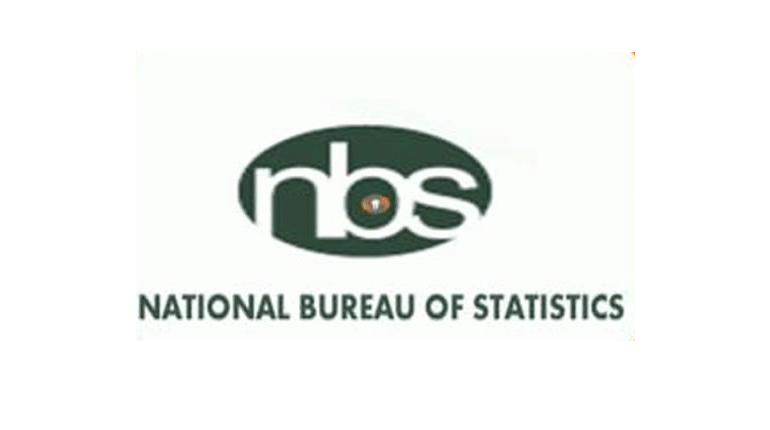Nigeria’s banking sector experienced a substantial influx of foreign capital in the first quarter of 2025, attracting over $3.1 billion, according to data released by the National Bureau of Statistics (NBS). This surge represented a significant portion (55.44%) of the total $5.64 billion in capital imported into the country during the same period. This overall inflow marked a robust 67.12% year-on-year increase compared to the $3.38 billion recorded in Q1 2024 and a 10.86% quarter-on-quarter growth from Q4 2024’s $5.09 billion, signaling a resurgence in investor confidence. The banking sector’s dominance in attracting foreign capital underscores its perceived stability and potential for growth within the Nigerian economy.
A deeper dive into the data reveals that portfolio investment constituted the lion’s share of capital inflows, accounting for $5.20 billion or 92.25% of the total. Other investments followed at $311.17 million, while foreign direct investment (FDI) trailed significantly at $126.29 million. This pattern suggests a preference for short-term, potentially speculative investments over long-term, strategic commitments. Following banking, the financing industry secured a substantial $2.10 billion, representing 37.18% of total capital importation. This trend further highlights the financial sector’s attractiveness to foreign investors. However, the manufacturing sector presented a stark contrast, experiencing a net outflow of $62 million in capital during the same period, raising concerns about the sector’s recovery and attractiveness to foreign investors.
Geographic analysis of the capital inflows revealed a concentrated distribution, with Abuja (Federal Capital Territory) and Lagos State attracting the bulk of the investments. Abuja led with $3.05 billion (54.11%), followed closely by Lagos State with $2.56 billion (45.44%). Other states, including Ogun, Oyo, and Kaduna, received only marginal inflows. This concentration in major urban centers underscores the existing infrastructure and established financial hubs in these areas, while also highlighting the need for policies to encourage wider distribution of investments across the country. The dominance of Abuja and Lagos in attracting capital points to the persistent regional economic disparity within Nigeria and emphasizes the need for strategies to stimulate investment in other regions.
Further breakdown of the foreign capital sources reveals the United Kingdom as the primary contributor, accounting for $3.68 billion or 65.26% of the total inflow. South Africa and Mauritius trailed with $501.29 million and $394.51 million, respectively. This underscores the strong economic ties between Nigeria and the UK, as well as the growing influence of other African nations in the Nigerian investment landscape. Within the banking sector, Standard Chartered Bank Nigeria Limited led the pack, attracting $2.10 billion (37.29% of total capital imported), followed by Stanbic IBTC Bank Plc with $1.40 billion (24.78%), and Citibank Nigeria Limited with $1.05 billion (18.66%). The significant share captured by these major international banks indicates their established presence and strategic focus on the Nigerian market.
Despite the overall positive trend in capital importation, the manufacturing sector’s performance painted a concerning picture. The sector recorded a $62 million outflow, contrasting sharply with the overall 67.12% year-on-year growth in capital inflows. This represents a 32.31% decline in capital importation for the manufacturing sector compared to Q1 2024, where it attracted $191.92 million. The sector’s share of total capital importation also shrunk from 5.68% in Q1 2024 to a mere 2.30% in Q1 2025. Experts attribute this decline to the lingering effects of recent economic reforms, particularly the foreign exchange regime consolidation and energy price hikes, which have impacted investor confidence and the operating environment for manufacturers.
The manufacturing sector’s struggles are further underscored by the Manufacturers Association of Nigeria’s (MAN) findings, revealing a substantial increase in unsold finished goods, signaling weak consumer demand. While some industry watchers expressed cautious optimism about the stabilizing effects of the reforms on foreign investment in the manufacturing sector, the Q1 2025 data suggests a delayed recovery. Experts like Dr. Muda Yusuf, Director of the Centre for Promotion of Private Enterprise (CPPE), believe that the sector is still grappling with the shocks of the reforms and that regaining investor confidence will require sustained macroeconomic stability and policy adjustments. Despite these challenges, Yusuf remains hopeful, citing the relatively strong performance of some manufacturing subsectors, such as oil refining, chemicals and pharmaceuticals, cement, and food and beverages, as potential catalysts for renewed investor interest. These subsectors offer promising prospects for growth and could attract foreign investment as the overall economic climate improves.














